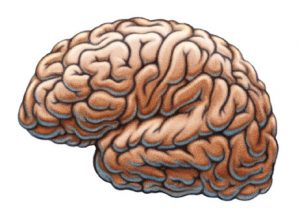Brain Injury: What is it?
We posted a blog earlier today about the quest to find a cure for brain injury. This might involve blocking the integrin protein or stopping the cascade of events that follow a traumatic brain injury. The team of researchers all participated in the military. However, research such as this can help all people with traumatic brain injury, including veterans, people in car accidents, and injured football players.

What is brain injury? It’s hard for experts to agree. (Flickr / Creative Commons / Isaac Mao)
The search for a pill to cure brain damageis difficult when experts can’t agree what brain injury is. It has so many facets that is hard to agree on one definition. Sounds cliche, but no two brain injuries are the same. They may injure different parts of the brain and everyone has a different reaction to brain injury. People may vary on their level of resilience. One person may be affected greatly for the rest of their life by brain injury, while others may not see the same effects.
We told the story on this blog of Lethan Candlish. He had what is considered severe brain damage. He was in a coma for five days. However, he was able to write and perform a play, Who Am I Again. Watching his performance, the viewer does not get the feeling this man has undergone severe brain damage. His speech is normal, and his memory is impeccable.
However, in the story of Kevin’s brain injury, posted last month on this blog, Kevin sees real problems, especially with his speech. He can use logic, but his speech is delivered in a halting voice. He also almost forgot to go to the interview many years ago when we talked to him.
The Mayo Clinic has what we consider to be an absurdly conservative definition of brain injury as “brain dysfunction caused by an outside force, usually a violent blow to the head.” It is a common injury with about 200,000 cases a year. However, brain injury is not always a visible condition. The brain can be shook around in the hard skull, causing damage, without a visible sign. This means that some people may not even seek treatment for a brain injury. The author of this website suffered a traumatic brain injury that he didn’t know he had.
The CDC defines a concussion as “caused by a bump, blow, or jolt to the head or by a hit to the body that causes the head and brain to move rapidly back and forth. This sudden movement can cause the brain to bounce around or twist in the skull, stretching and damaging the brain cells and creating chemical changes in the brain.”
Veteran Affairs defines traumatic brain injury as “a blow or jolt to the head or an object penetrating the brain. When the brain is injured, the person can experience a change in consciousness that can range from becoming disoriented and confused to slipping into a coma. The person might also have a loss of memory for the time immediately before or after the event that caused the injury.”
The American Congress of Rehabilitation Medicine defines traumatic brain injury, too. It is perhaps the most accepted definition of a mild traumatic brain injury.
“A patient with mild traumatic brain injury is a person who has had a traumatically induced physiological disruption of brain function, as manifested by at least one of the following:
1. any period of loss of consciousness;
2. any loss of memory for events immediately before or after the accident;
3. any alteration in mental state at the time of the accident (eg, feeling dazed, disoriented, or confused); and
4. focal neurological deficits that may or may not be transient; but where the severity of the injury does not exceed the following: loss of conscientiousness for approximately thirty minutes or less; after 30 minutes an initial Glasgow Coma Scale (GCS) of 13-15; post traumatic amnesia not greater than 24 hours”








